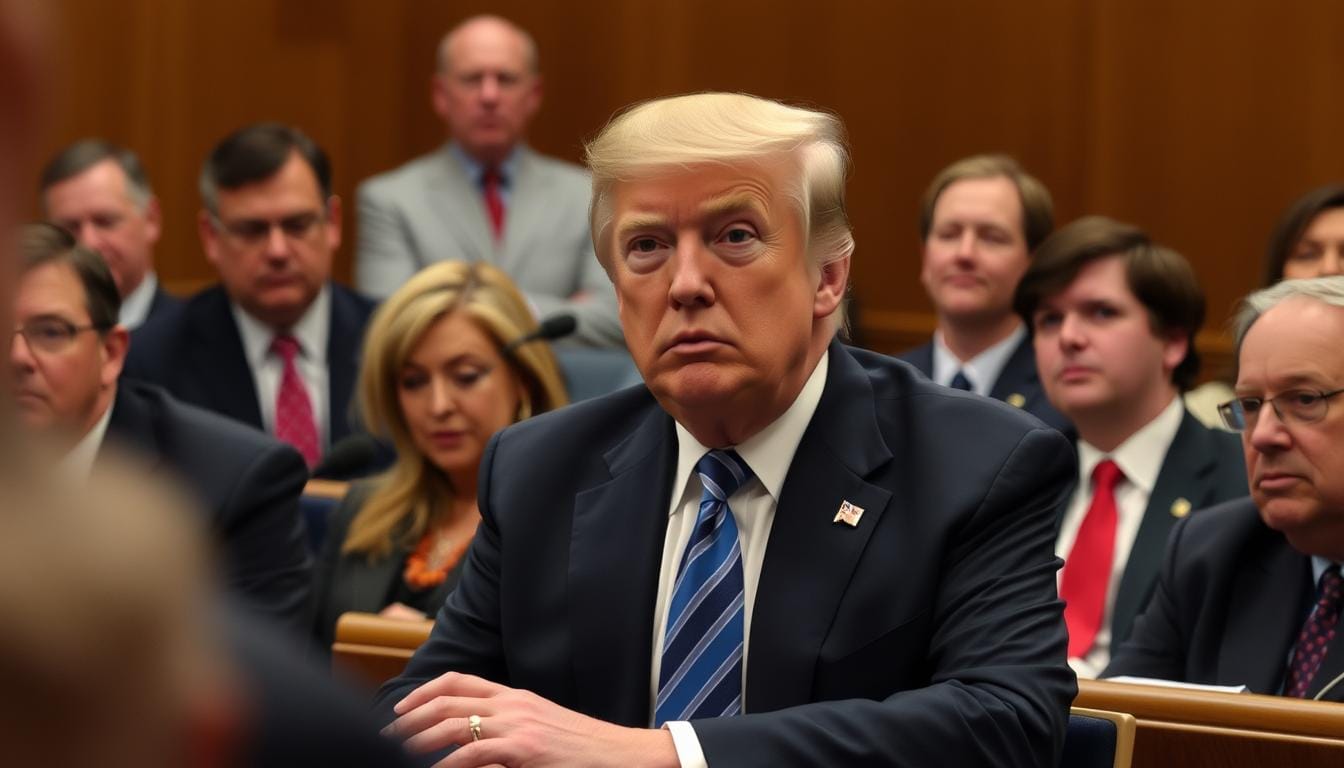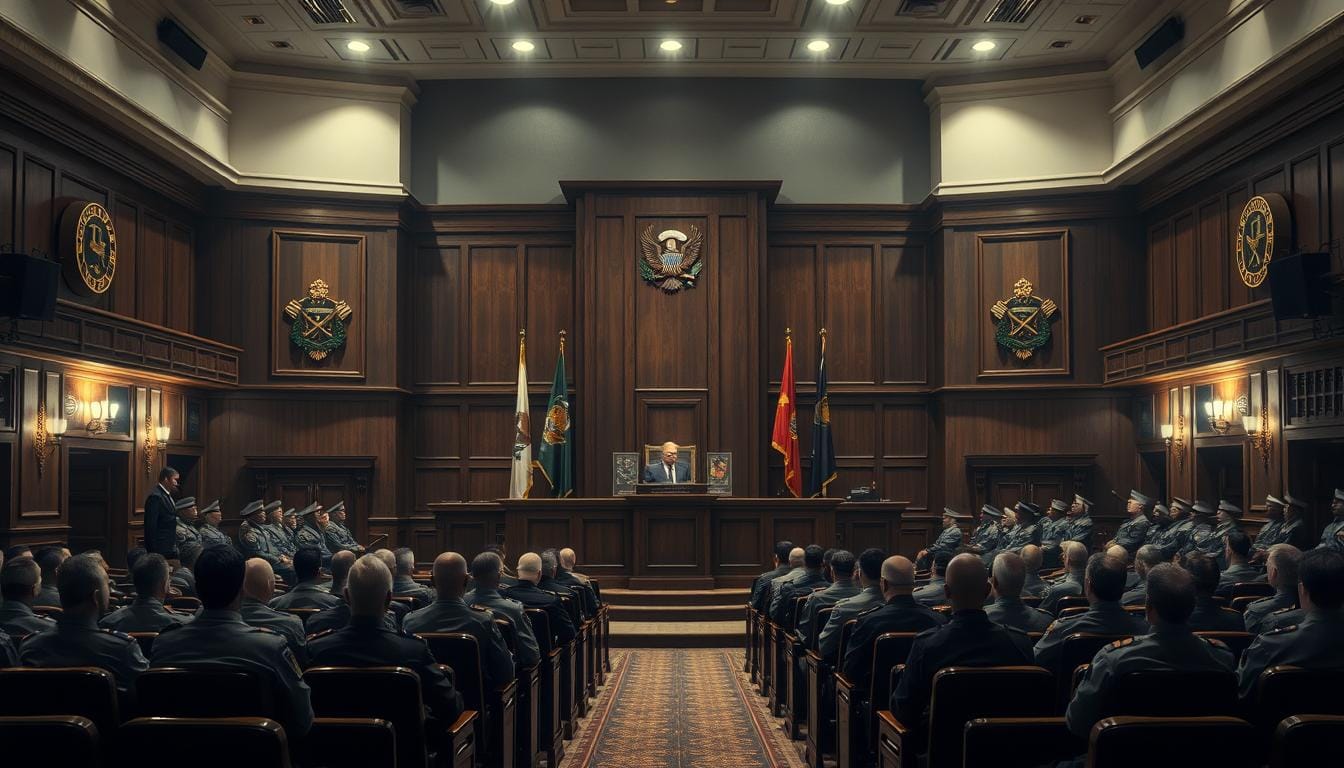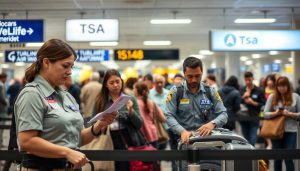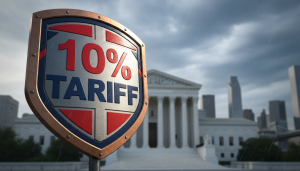Federal Court Judge Deems Trump’s National Guard Deployment Unlawful
A landmark ruling finds the deployment of the National Guard by Trump’s administration unlawful, with significant legal implications.
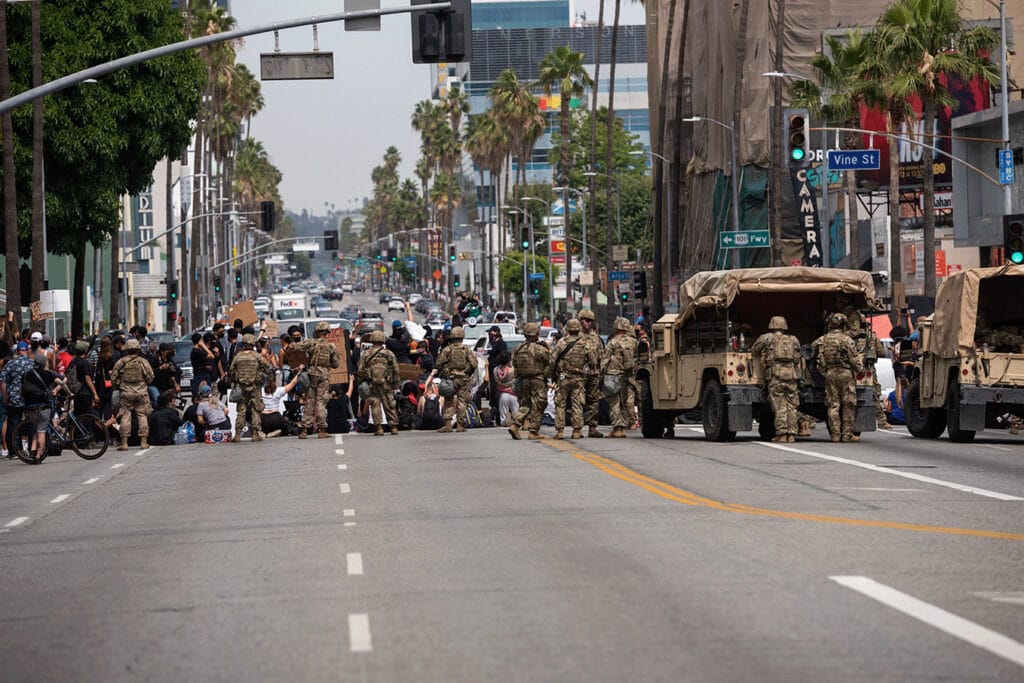
Judge Deems Trump's National Guard Deployment Unlawful
Judge Deems Trump’s National Guard Deployment Unlawful: San Francisco, CA — A federal judge has issued a landmark ruling preventing U.S. soldiers from helping with immigration arrests and other civilian law enforcement operations across California. The decision, set to take effect September 12, delivers a significant win for state officials but could set the stage for a fierce legal battle with the White House.
In the sharply worded order, the judge warned of the risks of creating a “national police force” under direct presidential control. Legal experts say the case could have nationwide implications for how far the federal government can go when deploying the military on U.S. soil.
While California celebrates the ruling, constitutional scholars caution that the victory could be short-lived. If the 9th Circuit Court of Appeals — or ultimately the U.S. Supreme Court — overturns the decision, President Trump could gain broad authority to deploy troops for immigration enforcement and other domestic operations.
“The stakes are enormous,” said Eric J. Segall, a constitutional law professor at Georgia State University. “If this ruling is reversed, the administration could have nearly unlimited power — and that’s a dangerous precedent.”
The outcome of the expected appeals could reshape the balance of power between states, the courts, and the federal government — with lasting consequences for immigration policy and presidential authority nationwide.
Senior District Judge Charles R. Breyer made a big decision. He said the Trump National Guard’s use in California was wrong. This was because of the administration’s actions during immigration raids and tense times in Los Angeles.
The ruling starts on September 12. It shows we must follow the law about using the military in the U.S. Judge Breyer said we can’t let the military become a “national police force” controlled by the president. This goes against the Posse Comitatus Act of 1878. His decision stops the administration’s overreach, changing how we see the military’s role in civilian life.
Judge Deems Trump’s National Guard Deployment Unlawful: Key Takeaways
- National Guard Deployment Unlawful in Los Angeles
- The ruling declares the Trump National Guard deployment in California unlawful.
- Judge Breyer’s decision emphasizes constitutional limitations on military involvement in civilian law enforcement.
- The Posse Comitatus Act of 1878 was a critical point in the decision.
- The ruling reflects concerns about the military’s increasing role in domestic policing.
- The decision will be effective from September 12.
- California’s Governor Gavin Newsom was a strong opponent of the deployment.
For more on this ruling, check out the full story here or read more details here.
Overview of the Court Ruling on National Guard Deployment
A federal court in San Francisco made a big decision. Judge Charles R. Breyer led the court. They discussed the potential use of National Guard troops in law enforcement.
This decision went against the Trump administration’s plans. It was about immigration enforcement and keeping cities safe in California.
Judge Charles R. Breyer’s ruling made people worried. They thought it could lead to a significant federal force. This force could be controlled by the President.
They were worried about big immigration raids and keeping cities safe. Places like Los Angeles were concerned.
This decision is a big win for the courts. It shows the balance between the federal government and the states. The court ruled that using the military for law enforcement is wrong.
This ruling is significant. It affects the current government’s plans. It also sets a rule for future actions on immigration and safety.
Legal Implications of Deploying the National Guard
Deploying National Guard forces during domestic incidents has raised legal questions. A federal ruling found that such actions during Southern California immigration protests were illegal. This shows the importance of following military deployment rules.
Violation of Military Deployment Regulations
Judge Charles Breyer said the Trump administration broke the law. He said they used the National Guard in ways not allowed by the Posse Comitatus Act. This law restricts the military’s involvement in domestic law enforcement unless Congress explicitly authorizes it.
The Trump team said troops were protecting federal officers, not enforcing laws. But Judge Breyer disagreed. He said the troops were doing things like controlling crowds and traffic, which is not allowed.
Read more about Judge Breyer’s ruling here
Possible Consequences and Appeals
The ruling could lead to more legal fights. The Department of Justice plans to appeal, possibly all the way to the Supreme Court. This could change how future presidents use the military in the U.S.
Learn more about ongoing justice department actions.
This case will likely change how the military is used in the U.S. It’s vital for future decisions to follow military deployment rules closely.
National Guard Deployment Unlawful: Key Takeaways
A recent court ruling found the National Guard deployment to be unlawful. This has sparked a lot of talk. It shows how important it is to keep military and civilian areas separate.
Judicial Reasoning and Historical Context
The court’s decision aimed to keep military and civilian areas apart. For a long time, America has been careful about using the military in civilian matters. This is to make sure the police and military don’t mix too much.
This rule helps maintain fairness and prevents the military from taking over. It ensures the president can’t use the military without proper authorization.
Public and Legal Expert Reactions
People and lawyers have different views on this ruling. Some people think it’s beneficial because it limits the president’s ability to use the military excessively. Others worry it might make it harder for the president to keep us safe.
This judicial review could change how we see military use in the future. As this case goes on, people’s views on using the military will likely change, too.
Legal experts will study this ruling for a long time. It shows the tricky balance between following the law and keeping us safe. We should monitor how public opinion and laws evolve regarding the use of the military.
Judge Deems Trump’s National Guard Deployment Unlawful Conclusion
The court’s decision against the Trump administration’s national guard move is key. It shows where military power stops and civilian rule starts. Judge Charles Breyer made it clear that the Posse Comitatus Act of 1878 matters.
This act is essential. It says the National Guard can’t be used without Congress saying so. This ruling is a big deal for future leaders.
It shows the importance of maintaining public safety and adhering to the law. The court’s ruling reminds us always to protect democracy. We must also keep the military out of civilian matters.
For more on this, check out The Guardian and Salon. This ruling is a big win for our country. It keeps the military and civilians separate and follows the law.
FAQ
What was the landmark decision made by Judge Charles R. Breyer?
Judge Charles R. Breyer made a big decision. He ruled against using the National Guard for civilian law enforcement in California. He said the administration went too far in using military forces in the U.S.
Why was the National Guard deployment in California deemed unlawful?
The deployment was seen as wrong because it broke constitutional rules. It also went against laws like the Posse Comitatus Act. This act stops the military from helping with civilian law enforcement.
What activities led to the ruling against National Guard deployment?
The ruling stemmed from actions such as large-scale immigration raids and increased military presence in cities like Los Angeles. People saw it as making a “national police force” controlled by the president. This led to the court’s reaction.
What are the legal implications of deploying the National Guard unlawfully?
Breaking the rules can lead to significant legal problems. It can mean violating military rules and constitutional limits. It might also lead to more legal fights and could change how future presidents use the military.
What consequences might arise from violating National Guard deployment laws?
Breaking the law can lead to court blocks, appeals, and scrutiny from higher courts like the U.S. Supreme Court. This can shape how we see presidential powers and military rules in the future.
How did Judge Breyer’s ruling address the administration’s actions?
Judge Breyer’s ruling expressed concern over the administration’s actions. He thought they had gone too far and broken the law. He stressed the need to follow the law when using the military in the U.S.
What does the historical context say about military involvement in civilian matters?
In the past, there has been a careful approach to using the military in civilian areas. This shows that civilian law enforcement should not mix with military actions. This idea is fundamental in American law.
How have the public and legal experts reacted to the ruling?
People have different views. Some people believe it’s beneficial to limit the president’s power. Others worry it might make it harder to keep people safe. Legal experts are watching closely to see what it means for the future.
What are the next steps following the ruling?
The Department of Justice plans to appeal right away. They might take it to the U.S. Supreme Court. The case will examine past actions and the president’s authority over the U.S. military.

